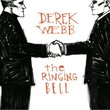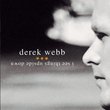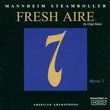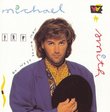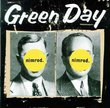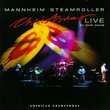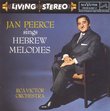| All Artists: Derek Webb Title: Stockholm Syndrome Members Wishing: 0 Total Copies: 0 Label: Sony Original Release Date: 8/31/2009 Release Date: 8/31/2009 Genres: Folk, Pop, Christian & Gospel, Gospel Styles: Contemporary Folk, Singer-Songwriters, Pop & Contemporary, Rock & Alternative Number of Discs: 1 SwapaCD Credits: 1 Other Editions: CD Stockholm Syndrome UPC: 886975400928 |
Search - Derek Webb :: Stockholm Syndrome
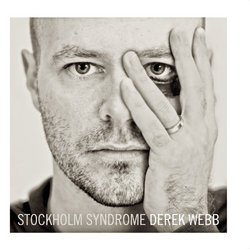 | Derek Webb Stockholm Syndrome Genres: Folk, Pop, Christian & Gospel, Gospel
|
Larger Image |
CD DetailsSimilar CDs
Similarly Requested CDs
|
CD ReviewsWhat Matters More? Robert Hammond | Oshkosh, WI | 09/01/2009 (5 out of 5 stars) "Stockholm Syndrome is Derek Webb singing his swan song to the Christian mainstream. The album may be perceived as negative, and may only sell a few thousand copies, but I believe Derek has created a true work of art. Webb steps back from the snappy pop of The Ringing Bell, and spent the last couple of years producing a simple and moody record. It is a very outspoken album that, in effect, is Derek's epistle to the modern Christian subculture. Electronic? Yes. Timberlake? No. The music styles tend to be a bit spastic- from disco to trip-hop to modern pop. Jena & Jimmy is a disco troupe send up to Mellencamp's Jack & Diane, shows two different takes on a shallow relationship. The Proverbial Gun shows the tension and resolve of a slow, deliberate melody. Freddie, Please is an experimental Motown track written as a letter to right-wing radical Fred Phelps. Heaven showcases Derek's superb knack for wit, and Cobra Con is probably his most accessible track on the album. It's sad that this album is already being written off because of controversial nature of lyrics. In defense of these songs, profanity is not the purpose, but rather to show the imbalance of parallel moral standards. Mr. Webb's critics have already panned Stockholm Syndrome based on the "unofficial" release of this song. Listen with open ears, if possible. INO records has taken a chance with Derek Webb - they let him write songs that he wants to write, about topics that he's passionate about, and have his own artistic take on these songs. This record will do little to increase his presence on Christian radio TV and the like, but they have an interlocking reliance on each other, creating a true album. " Excellent record that makes you think Colin B. Thomas | Charlottesville, VA USA | 09/01/2009 (5 out of 5 stars) "Stockholm Syndrome is easily Webb's best album since She Must and Shall Go Free. Whereas that album centered on the Church and her relationship with God, this album turns its focus on the decisions we make living in a fallen world. Specifically, how we often fall in love with things that do us harm. Webb has stated that this is his most personal album, and that is very much reflected in the lyrics. Much has been made, and will be made, of the "controversy" surrounding this album. To focus too much on that misses the point of the album. "What Matters More" does include the word s*** as well as d***. However, the significance of the song lays in asking the question of why we put so much emphasis on certain things at the expense of others. That is the strength of the album: it will make you ask important questions about views so that you can know why you hold them. Probing lyrics in a song would be somewhat useless if they were not backed up with great music. Webb doesn't fail to deliver. Together with Josh Moore from Caedmon's Call, he has created music that draws you into the songs so that the punch of the lyrics can be more acutely felt. For example, "Freddie, Please" is a song that speaks to Fred Phelps (and people like him), a "pastor" whose message of Christianity is that "God hates f***"; in a swinging style reminiscent of "Beauty School Dropout" (from Grease), Webb channels what Christ might have to say to Phelps if he showed up in a dream ala Frankie Avalon. One note on the style of the album. In contrast with much of Webb's previous work, the music on this album moves away from the folk, single guitar feel. It has a more digital-organic feel with great beats. Different, but great. In summary, Stockholm Syndrome is a great combination of music that is pleasurable to listen to while it makes you think." Derek Webb [Stockholm Syndrome] Kevin R. Davis | Perkasie, PA | 09/01/2009 (4 out of 5 stars) "Over two years in the making, Webb co-produced "Stockholm Syndrome", with former Caedmon's Call bandmate Josh Moore. "Stockholm Syndrome", delivers everything listeners have come to expect from Derek Webb: killer pop hooks and lyrics as thought provoking as they are emotionally revealing. Sonically, however, this record is a radical departure for Webb, who has left his acoustic, folk/rock roots behind for a sound he describes as "intentionally inorganic." "I've always loved folk music," Webb says, "because of its ability to tell the story of the times we're living live in, in a timeless way. But for me, the best folk music on the scene right now is hip-hop. So with "Stockholm Syndrome", I wanted to incorporate the more urban and evocative elements of hip-hop." Webb says he and Moore made the record Gnarls Barkley-style. Webb uses this album as a means of exploring deep issues through the central metaphor of "Stockholm Syndrome", illuminating the ways in which a society can fall in love with an oppressive culture and become enslaved by it.
After a cool instrumental song called "Opening Credits", Derek gets right into what he considers the thesis statement of the album with the song "Black Eye", in essence the title song. According to Derek, "I was looking at the world around me and seeing evidence of Stockholm Syndrome everywhere. All the issues I was having - that my friends were having - that my community was having - were all deeply rooted in our being in love with the ideas and institutions that are holding us hostage. We love these things. We worship them." The song has a great upbeat style unlike any song I've ever heard by Derek and I think he's bringing up an important theme as Christians, which is how our culture is infatuated with everything that will destroy us. Derek framed the entire album from that perspective. "Cobra Con" is next, with a similar electro-pop musical style and another strong message of out-loving and out-suffering our enemies, the people who seek to do us harm. The tools and the weapons we need to fight back are patience and love. Rather than address the messages behind each of Derek's songs, suffice it to say that like all of Derek's albums, he has social commentary about sensitive topics that most Christian songwriters don't address such as addressing anti-gay sentiments ("Freddie, Please"), relationships and sexuality ("I Love/Hate You", "What You Give Up To Get It") and his usual sarcastic commentary ("Heaven"). To just address the messages song-by-song would be an unfair way to rate this excellent album, the best overall album by Derek Webb in my opinion. Considering that I am a long-time fan of Derek's back to his Caedmon's Call days and that "Faith My Eyes", "Somewhere North", "Thankful", "Wedding Dress" and "Lover" are among my favorite songs of all-time, this album was worth the wait. Sonically, this album has everything I look for, musical hooks, great melodies and intelligent lyrics. One of my favorite sections of the album is the flow from "The State" to "The Proverbial Gun". Derek kept recording after finishing "The State" and started singing an entire stream of consciousness paragraph that Derek had written which became the song "The Proverbial Gun", one of my favorite songs on the entire album. Musically it reminds me of the style of "I See Things Upside Down", with the songs having an intentional flow and musical connection. My other favorite song combination is "Becoming A Slave" and "Jena & Jimmy". If you like Derek Webb and the musical style of "The Long Fall Back To Earth" by Jars of Clay, I highly recommend "Stockholm Syndrome"." |

 Track Listings (13) - Disc #1
Track Listings (13) - Disc #1